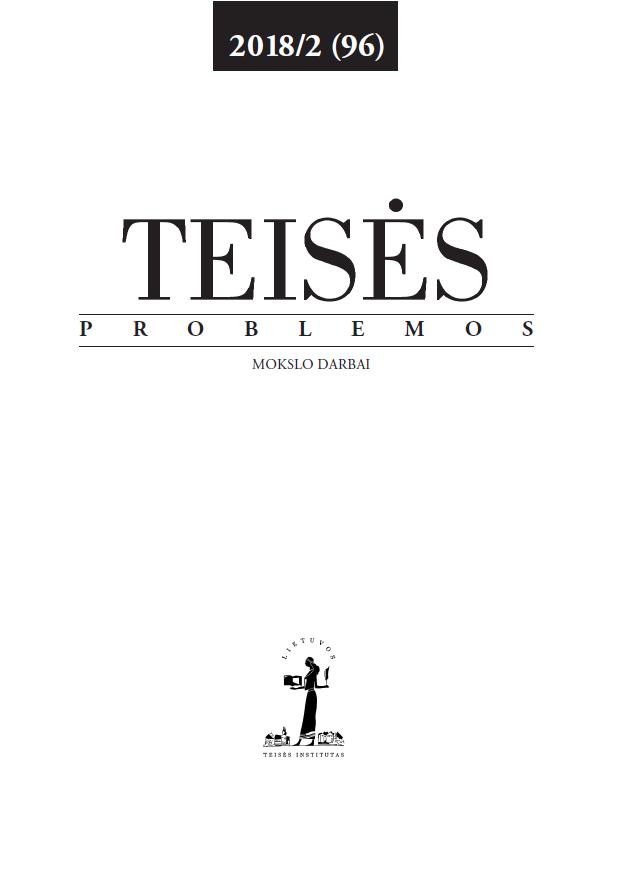Nauji juridinio asmens baudžiamosios atsakomybės kriterijai Lietuvos Respublikos teisėje
New Criteria of Criminal Liability of a Legal Person in the Lithuanian National Law
Author(s): Rasa Trilytė-ZeleninaSubject(s): Criminal Law
Published by: Lietuvos teisės institutas
Keywords: criminal liability applied to a legal person;Criminal Code of the Republic of Lithuania
Summary/Abstract: The article deals with the issues of changes of criminal liability applied to a legal person a.er the changes in the Article 20 of the Criminal Code of the Republic of Lithuania and in the Article 387 of the Code of Criminal Procedure of the Republic of Lithuania which have been made by the Seimas of the Republic of Lithuania on the 10th of November 2016. The author is analysing how these changes were impacted by international obligations of Lithuania according to international conventions where the issues of criminal liability of a legal person are incorporated. The goal of this research is to introduce the main problematic insights of practical application and theoretical reasoning of changes made in the articles stated above. The author is analysing the changes of legal regulation throughout the identification of criteria of a natural person (who is performing in the benefit and interest of an enterprise) and his fault. This research is done using a deductive, systematic analysis and comparative methods of scientific research. The article stated that in the Lithuanian criminal law a new approach based on the aggregation doctrine was codified. The author aims to highlight the problems that were caused by sudden changes of legal norms. A particular non-compliance between legal norms, which had been intended to regulate criminal liability of a legal person, has appeared. The author came to a conclusion that the changes of legal norms were made without a correction of other directly related legal norms. What was not taken into consideration was the limited scope of the legal norms, which had been constructed on the other doctrines of criminal liability, i.e. the identification doctrine. On the basis of the undertaken research a conclusion was drawn that the codification of the new model of criminal liability of legal persons implicated the new terms such as a person who may have committed a criminal offence in the Lithuanian law. Thereby, it further implies a scientific discourse trying to define the limits between a suspect and a person who may have committed a criminal offence. It also provokes a discussion on a relation between the statement of a criminal offence which may have been committed and the presumption of innocence applied to a legal person and to a natural person, who is acting on behalf of a legal person as well.
Journal: Teisės problemos
- Issue Year: 2018
- Issue No: 96(2)
- Page Range: 79-106
- Page Count: 28
- Language: Lithuanian

